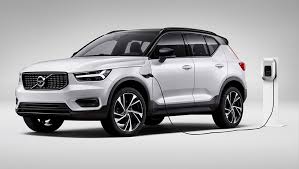Volvo plans to sell only electric cars by 2030
 Volvo Cars one-upped larger rivals like General Motors and added momentum to the movement toward electric vehicles on Tuesday by saying it would convert its entire lineup to battery power by 2030, no longer selling cars with internal combustion engines.
Volvo Cars one-upped larger rivals like General Motors and added momentum to the movement toward electric vehicles on Tuesday by saying it would convert its entire lineup to battery power by 2030, no longer selling cars with internal combustion engines.
The declaration by the Swedish carmaker is the latest attempt by a traditional carmaker to break with its fossil fuels past. It is also one of the most ambitious proposals and ratchets up the pressure on others to follow suit.
The auto industry has been drifting toward electrification for years, but the shift has taken on new urgency in recent months. President Biden’s election, along with his commitment to fight climate change, has raised expectations that the United States will offer the kind of incentives that helped make electric cars the fastest growing segment of the European market last year.
Where once automakers bragged about horse power and acceleration, now they are competing to be the greenest. G.M. said in January that it would go all-electric by 2035. Ford said last month it would sell only battery-powered cars in Europe starting in 2030, and the maker of Jaguar luxury cars made a similar promise.
Gasoline- and diesel-powered cars still account for the vast majority of sales, but in Europe sales of cars powered solely by batteries more than doubled last year, to about 730,000 vehicles, according to Schmidt Automotive Research. Sales of conventional autos slumped.
“If you want to be in the game you have to transform fast,” Håkan Samuelsson, the chief executive of Volvo, said in an interview. “Otherwise you get stuck in a shrinking segment.”
BMW, Audi and Mercedes-Benz, German carmakers that target the same affluent buyers as Volvo, have not yet set expiration dates for internal combustion models. They may be fearful of unsettling buyers of gasoline vehicles.
But they are no longer investing heavily in internal combustion engines and are rushing to produce vehicles that can compete with Tesla’s electric models.
“They are all thinking pure electric,” said Ferdinand Dudenhöffer, a longtime industry analyst. “The only thing they are not doing is announcing a date.”
Volvo, owned by Geely Holding of China, has been ahead of larger rivals in converting to electric power. In 2019, all the models it sold were either hybrids or ran solely on batteries.
By 2030, Volvo will “phase out any car in its global portfolio with an internal combustion engine, including hybrids,” the company said in a statement on Tuesday. Hybrids have better fuel economy than conventional vehicles, but they may not be much better for the climate or for urban air quality if drivers do not use the electric capabilities.
Volvo acknowledged that it was responding in part to pressure from governments, many of which have announced bans on internal combustion engines in coming years.
The company said its decision was based “on the expectation that legislation as well as a rapid expansion of accessible high quality charging infrastructure will accelerate consumer acceptance of fully electric cars.”
In another break from the practice of traditional carmakers, Volvo’s electric models will be sold exclusively online.
“Instead of investing in a shrinking business, we choose to invest in the future — electric and online,” Mr. Samuelsson said in a statement.
You can return to the main Market News page, or press the Back button on your browser.

